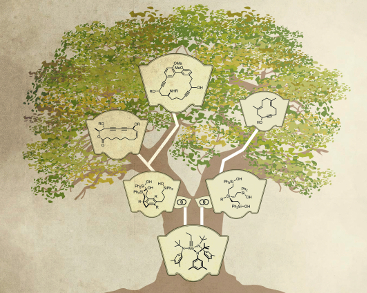Using molybdenum-alkylidene-siloxy complexes as catalysts for alkyne metathesis significantly improves the reaction with respect to catalytic activity and functional group tolerance. However, challenges still remain for known catalyst systems in terms of ease of synthesis, scale-up, and application to problematic substrates, e.g., those with protic sites.
Alois Fürstner and colleagues, Max Planck Institute (MPI) for Coal Research, Mülheim an der Ruhr, Germany, have addressed these challenges by combining a tris(amido)molybdenum alkylidene complex and easily synthesized trisilanol ligands. This new two-component catalyst provides excellent functional group tolerance in alkyne metathesis, including alkynes bearing primary, secondary, or phenolic OH groups. It also works well for (bis)propargylic alcohol derivatives.
The researchers used the method to synthesize natural products such as manshurolide, a sesquiterpene lactone found in Manchurian pipevine, and ivorenolide A, a macrolide found in African mahogany. They also demonstrated the first alkyne metathesis of a substrate with three different triple bonds, two of which underwent catalysis, whereas the third remained untouched. These results are a progress for alkyne chemistry and could inform further catalyst design.
- A Two-Component Alkyne Metathesis Catalyst System with an Improved Substrate Scope and Functional Group Tolerance: Development and Applications to Natural Product Synthesis,
Sebastian Schaubach, Konrad Gebauer, Felix Ungeheuer, Laura Hoffmeister, Marina K. Ilg, Conny Wirtz, Alois Fürstner,
Chem. Eur. J. 2016.
DOI: 10.1002/chem.201601163




